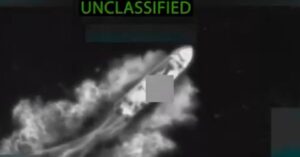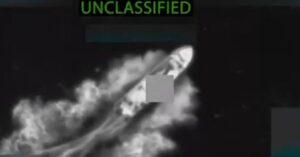
In A World First, Royal Navy Tests Quantum Optical Atomic Clock On Underwater Vessel
October 30, 2025
India Secures Six-Month Exemption From US Sanctions To Operate Iran’s Chabahar Port
October 30, 2025

Senate Democrats have demanded the U.S. Department of Justice (DOJ) provide a full legal justification for a series of military strikes on alleged drug vessels that have killed at least 57 people since September.
In a letter addressed to Attorney General Pam Bondi, members of the Senate Judiciary Committee, led by Vermont Senator Peter Welch, requested that the DOJ release all legal opinions assessing the lawfulness of the operations.
The letter, signed by all Democratic members of the committee including Ranking Member Dick Durbin, questioned whether the department had provided sufficient legal guidance to those involved in authorising and carrying out the strikes.
The senators stated that killing criminal suspects without due process is forbidden under both U.S. and international law, regardless of wartime or peacetime conditions.
Welch, speaking in the Senate, said that the President must seek congressional approval before undertaking military actions that could amount to acts of war. He emphasised that both laws and constitutional procedures must be respected in such decisions.
Since early September, the U.S. military has conducted at least 13 strikes targeting alleged drug trafficking vessels, mostly in the Caribbean Sea and the Eastern Pacific. Pentagon officials have confirmed that some of the deceased were citizens of Venezuela, Colombia and Ecuador.
The Trump administration has described those targeted as “narco-terrorists”, but has not provided evidence that the vessels posed any imminent threat to the United States.
Legal experts have cautioned that the strikes could be considered unlawful killings if they were not supported by clear legal authorisation.
Critics said using the military against suspected drug traffickers is a major change from the usual U.S. practice, where the Coast Guard carries out interdictions and investigations were once managed by the now-disbanded “Panama Express” task forcem, a Reagan-era interagency programme that handled major maritime drug cases.
The DOJ has since closed the Panama Express programme and moved its remaining cases under a new Homeland Security Task Force. Lawmakers have criticised the move, arguing that it weakens the long-standing system of coordination between agencies and redirects resources from drug enforcement to immigration-related operations.
Yesterday, at the direction of President Trump, the Department of War carried out three lethal kinetic strikes on four vessels operated by Designated Terrorist Organizations (DTO) trafficking narcotics in the Eastern Pacific.
The four vessels were known by our intelligence… pic.twitter.com/UhoFlZ3jPG
— Secretary of War Pete Hegseth (@SecWar) October 28, 2025
Senator Welch also questioned the administration’s approach to addressing drug trafficking, stating that while billions are being spent on military operations in Venezuela, funding for domestic drug treatment programmes has been reduced. He said such cuts undermine efforts to support Americans struggling with addiction to fentanyl and other narcotics.
Human rights organisation Amnesty International has condemned the recent military strikes, calling them unlawful. The group said the U.S. government has not released the names of the victims or provided evidence of their alleged crimes. It also stated that even if the boats were transporting narcotics, that alone did not justify the use of lethal force.
According to Amnesty International, Secretary of State Marco Rubio acknowledged that the U.S. military could have intercepted the first suspected drug vessel but chose to destroy it instead. The group warned that such actions set a dangerous precedent for U.S. counter-narcotics policy.
The latest military operation took place on 30 October, when the Department of War carried out a lethal strike on a suspected narco-trafficking vessel in the Eastern Pacific. According to official information, the vessel was believed to be operated by a designated terrorist organisation and was travelling along a known drug-smuggling route while carrying narcotics. Four men on board the vessel were killed during the strike, which occurred in international waters.
Earlier this week in the Eastern Pacific, killing 14 people across three separate operations that targeted four vessels, while one person survived.
Meanwhile, Secretary of War Pete Hegseth has deployed the world largest aircraft carrier, Gerald R. Ford Carrier Strike Group to the U.S. Southern Command region to reinforce the campaign against transnational criminal organisations.
Reference: Reuters
Source: Maritime Shipping News


